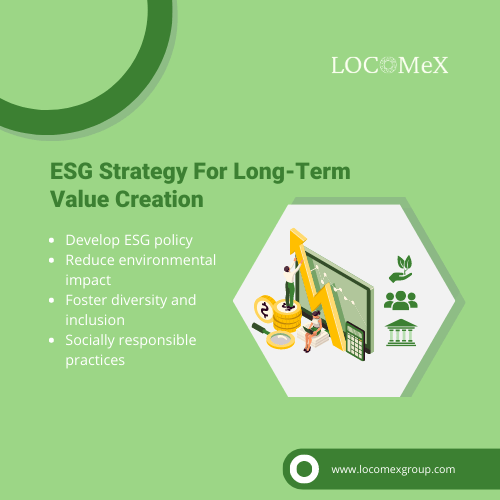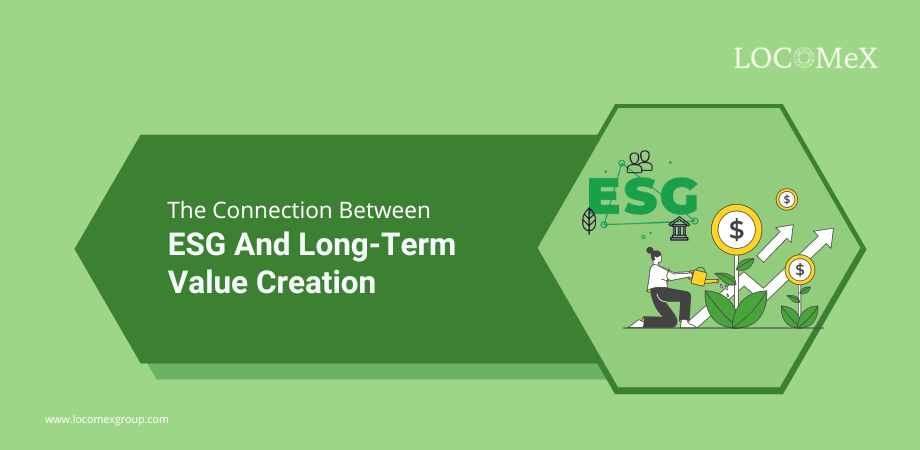In business, the foundation of success lies in value creation. Value creation is the ability to increase the worth of something to meet a specific demand. This value distinguishes you from your competitors, retains loyal customers, and gives purpose to your brand and offerings. Regardless of size, value creation is essential for all businesses, and it entails offering goods and services that clients constantly find beneficial.
Prioritizing ESG factors can lead to a surge in demand for a company’s products or services from capital markets, mitigate long-term risks, and elevate revenue, ultimately resulting in a higher company valuation. ESG and sustainability management software from LOCOMeX guide firms to achieve the desired value.
Why ESG Issues Matter
The Link Between ESG And Value Creation
1. Achieving growth in revenue
2. Optimizing investments and assets
3. Reduced regulatory and legal interventions
4. Reducing Costs
5. Employee productivity uplift

ESG Performance and Its Implications For Company Results
To attract investors, businesses need to do more than just issue sustainability reports and participate in events. To become sustainable businesses, they also need to implement other common ESG and sustainability practices. Company management or the chief sustainability officer should make it a practice to embrace ESG as a part of the investment process.



